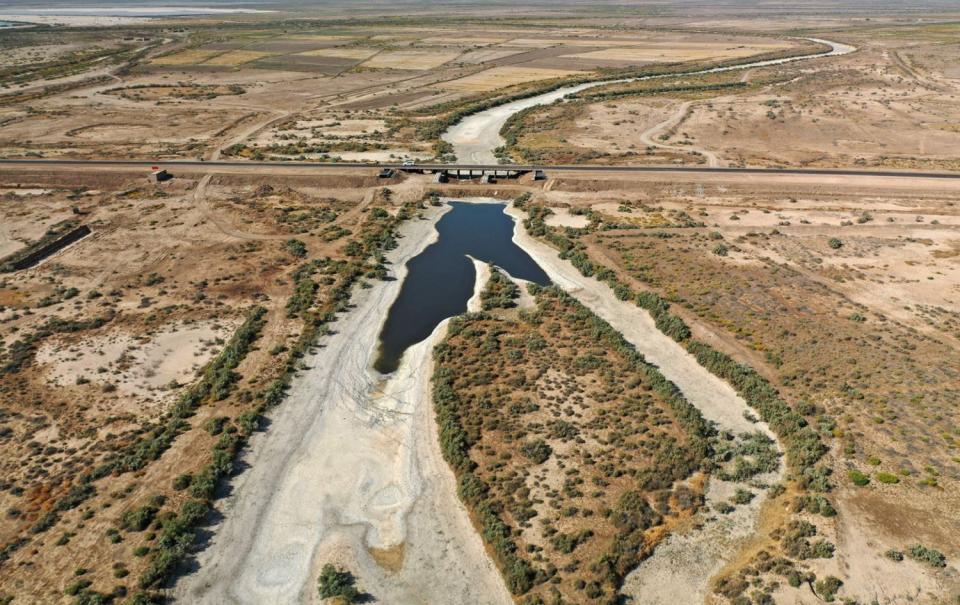Thousands of families across Iraq continue to be displaced from their homes due to drought, tracking updates on climate-induced displacement released on Thursday show, painting a stark picture of the increasingly dire consequences of climate breakdown on the population and particularly the agricultural community.
At least 3,334 families remain displaced as a result of drought conditions which reached record levels this summer in Baaj and Hatra districts of Nineveh province and across five further governorates in the south of Iraq, according to research from the International Organization for Migration (IOM)’s Displacement Tracking Matrix (DTM) in Iraq.
A lack of ability to rely on the land for income and stability has meant that the heating environment is forcing thousands to move, with DTM data analyzing the displacement of Iraqis from Ninevah province suggesting that the trend of migrating to more urban areas, such as Mosul - and cities in the Kurdistan Region such as Dohuk and Erbil - is set to continue.
Over 3,000 families continue to be displaced due to drought and reduced water flow across the five southern governorates monitored by DTM since February 2019. Dhi Qar governorate hosts the largest number of families (1,110) experiencing climate-induced displacement from the subsequent strain on agriculture, followed by Maysan (728) and Karbala governorates (339).
This summer, aid agencies in Iraq and Syria issued a warning that more than 12 million people in both countries are losing access to water, food, and electricity because of a severe water crisis, and according to the United Nations, only 3.5 percent of Iraq's farmlands are watered with the irrigation systems required to irrigate dried fields and guarantee sufficient and sustainable livelihoods in rural areas.
Abu Nazar, a rural farmer in Iraq’s southern province of Maysan, told Rudaw earlier this year that nearby farmers had abandoned their fields to move to the city. “If this water scarcity is not resolved, we too will be forced to leave because farming these lands without a local water source costs too much,” he said.
In October, IOM Iraq published a separate report on climate-induced migration to the southern city of Basra, where the water crisis toppled the Iraqi government in 2018, analyzing the impact of forced migration due to environmental degradation in urban areas.
The report recommended improving the ability of cities such as Basra to host the increasing numbers of Iraqis moving to urban areas and stressed the need to diversify the economic opportunities available to those who are forced to migrate because of environmental collapse.
Another recent study on water management in southern Iraq, published by the London School of Economics (LSE), is similarly dire about the impact of high population growth in Iraq compared to reducing supply flows and calls for the Basra governorate to get to grips with management of its neglected public water network infrastructure.

